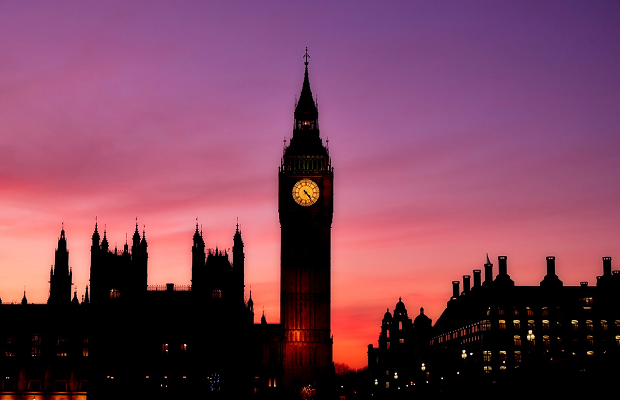A UK report looking into Russian interference into the 2016 EU referendum will not be published until after the election, despite claims that it could be released before.
Prime Minister Boris Johnson must give the green light for the findings of the special inquiry into Russia by the Intelligence and Security Committee to be released.
The government has confirmed that the report, received over two weeks ago on 17 October, will not be published by the time parliament rises on Wednesday.
Senior politicians and peers have said the government typically provides confirmation within 10 days. However, this has not yet happened.
Security and intelligence agencies confirmed that all measures necessary to protect sensitive information have already been taken and they have no objection to the report being made public.
Russia is accused of using unconventional forms of warfare to attack Western democracies, including social media propaganda and bots to exploit divisions during the Brexit referendum.
Security agencies in the US believe the Kremlin launched an influence operation against then Democratic candidate Hillary Clinton in the US presidential election.
The development came as Lord Anderson, the UK’s former independent reviewer of terrorism legislation, used an urgent question in the House of Lords to ask the government why the report has not yet been released and to call for its publication.
Lord Howe, responding for the government, said this would happen “in due course once the usual processes have been completed”.
‘We are as much spectators in this as you are,’ security source tells The Independent, as government blocks publication of documents until after election.
The inquiry by the Commons Intelligence and Security Committee is believed to have looked at claims of Moscow’s attempts to influence the Brexit campaign and Russian money going into UK institutions including sizeable donations made to the Conservative Party.
No 10 holds that the delay in publication is due to the need for the report to be extensively scrutinised for reasons of national security. This means it is unlikely to be published before Tuesday, when parliament rises, and therefore not until the after election on 12 December.
The government’s arguments have been dismissed by a number of senior former public officials including former cabinet secretary Lord Butler, Lord Ricketts, former national security advisor and chair of the Joint Intelligence Committee, and Lord Anderson, the former independent reviewer of terrorism legislation.
Lord Ricketts said: “The ISC are a highly professional committee and their reports are always worth reading. Since this has apparently already been redacted by the intelligence agencies there can be no national security reasons to delay publication.”
He later tweeted: “All other Select Committees publish their own reports. The ISC need PM’s agreement before it can publish. So the issue is NOT Govt needing time to respond. Just publish it!…Their response comes later.”
Lord Ricketts – There's a clear public interest that this report is published before the election as there's a lot of national security issues around Russia.. the way the Govt is handling this report gives everyone ground to think something suspicious is going on.#GE2019 pic.twitter.com/JqheHNeslt
— Haggis_UK #FBPE 🇬🇧 🇪🇺 (@Haggis_UK) November 4, 2019
In a Lords question on Monday afternoon Lord Anderson, a crossbencher, asked why there “has been unjustified delay” in getting confirmation of publication from Downing Street, when normal practice is that such confirmation is “always a formality”.
The peer commented that Downing Street’s position raised “suspicion of the government and its motives”. He pointed out that, contrary to what is being claimed by No 10, full redactions have taken place in liaison with the intelligence services and the Cabinet Office. He also stressed that the government does not normally give its response along with such reports, but later, having 60 days to do so.

